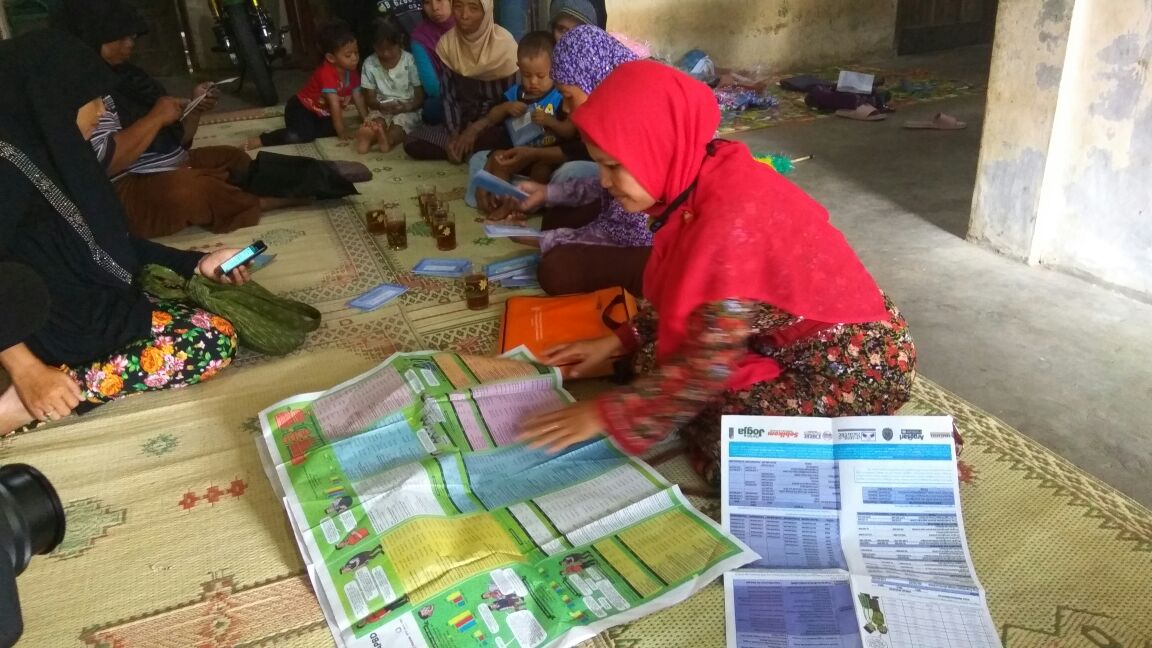Last year, we worked on an action-research project looking at how open data can help promote gender-inclusive development in two districts in Yogyakarta, Indonesia. You can read more of our lessons learned from this project through our paper, “Can We Use Open Data to Advance Gender-inclusive Development?”.
On a regular day, Iin Narniyati from Yogyakarta, Indonesia rises early to prepare her kids for school, cook breakfast for her family, and open up her small business to early customers. She is also a part of a local women’s organisation and regularly participates in village meetings, ensuring that women like her have a voice in how village development funds are spent. She is committed to making sure these funds are used to address the issues that concern her: the health and welfare of her and her children.
Tackling the growing gender divide
Globally, access to budget and spending information and underlying data is hampered by the digital divide. In Indonesia, the internet penetration rate is only around 50%. This inequality is further exacerbated by gender, age, income and education. Our Women’s Rights Online research at the Web Foundation has shown how the digital gender divide is pervasive: women are less likely to be connected to the web than men and less able to use it productively. Furthermore, women who are older, with less education and low income will likely lose out. Iin is part of the women’s group who tries to cross this divide.
At the Jakarta Lab, we’ve embarked on projects looking at how open data initiatives impact men and women differently, influenced by their differing contexts e.g., capacities, social status and opportunities. This is the first time that we’ve worked on a project focusing on and engaging with women and we’re seeing those differences being highlighted. We’ve learned invaluable lessons that will help us better design, implement, and monitor open data projects in the future and inform others doing the same. Here are two of those lessons:
In traditionally patriarchal societies, women face significant barriers to act on the data they are able to access and understand.
Social, political and economic context dictate women’s access, voice and participation in open data projects. Deeply-seated biases and culturally-ingrained perceptions on the role and capacity of women affect their voice in public discussions. In many cases, including in the villages we worked with for this project, to be taken seriously women are asked to prove their skills and show they are more competent than their male counterparts. And while skills, confidence and authority are key, unfortunately, for women they can have negative repercussions, with these traits being interpreted as arrogance and talkativeness — while such characteristics are perceived as the norm for men. Gender-inclusive open data interventions require a significant amount of sensitivity and understanding of gendered power dynamics.
Discrimination based on gender is a systemic problem.
In this project, before we could even start talking about the problems women wanted to solve and what data they would need to access, our partner Perkumpulan IDEA needed to reinforce the role of women in community-building, and how women and men should work together to achieve common goals. This included reminding village leaders why gender needs to be part of the local agenda, pointing to legal frameworks that promote women’s participation in Indonesia, and to global goals such as the Sustainable Development Goals.
While open data is key for initiatives that tackle gender discrimination, it can only do so much; changed mindsets, a vibrant civil society, capable intermediaries, and local governance supporting gender-inclusive structures are also very important.
Read more about how we designed, implemented and learned from this project in our paper, “Can We Use Open Data to Advance Gender-inclusive Development?”.
If you’ve enjoyed this, check out our other knowledge products including How-to Guides outlining the steps we take to design and implement some of our projects, Lessons Learned Papers detailing our experiences, challenges and takeaways, and Research Notes.
Follow us on Twitter at @ODLabJkt to stay updated on our latest activities!

Leave a Reply